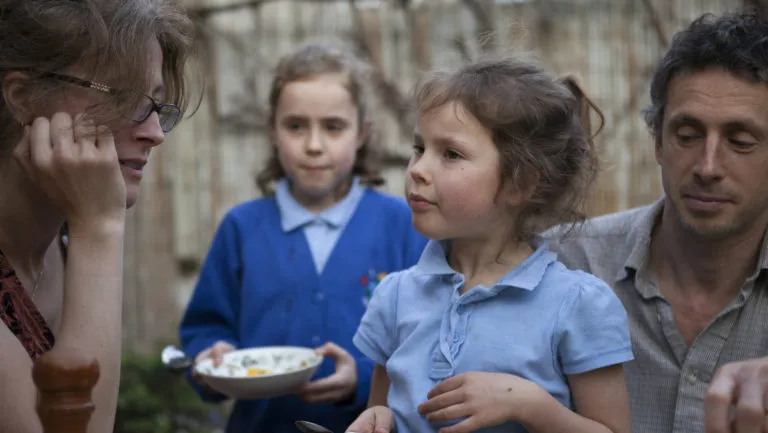‘We’ve seen whole families forced to share a bed’: the housing emergency on your doorstep
Published: by Guest blog

This article is part of a series, ‘Shelter defending the right to a home’, that appears on theguardian.com
High rents and dwindling benefits leave many families unable to heat their homes or eat. Shelter is demanding that the right to a home be placed on a par with the rights to education and healthcare.
When Tariq’s* wife saw the temporary accommodation the council were offering the couple and their two sons, she cried. The three bedrooms were damp, with mould on the walls and ceilings, and the carpet was brown with dirt. “We said: ‘We can’t live here,’” Tariq remembers. “But they said: ‘If you don’t take it, we’ll take the children to social services and you can live wherever you want.’”
The family accepted the flat and spent the next three months sleeping on the dining room floor, until finally, with Shelter’s support, they were allocated a suitable permanent property. “It’s in a good place, a secure place,” says Tariq. “We are happy. It was because of Shelter we were able to get the flat – without their help we couldn’t have done this.”
Tariq and his family are just some of the millions of people who contact Shelter each year via its telephone helpline, website, or in person at one of its service hubs across the UK – where expert advice is available face-to-face and free at the point of need.
“The housing situation has reached national emergency proportions,” says chief executive Polly Neate. “We’ve got more than 300,000 people, including 128,000 children, who are homeless. As a society we have lost sight of the right to a home – a most basic human need. We need nothing less than a culture change, one that gives public housing the same status as healthcare or education.”

For Shelter, the crisis is at a turning point: with the simple idea of a right to a home under threat for millions thanks to poor housing security, unsuitable conditions, lack of availability and unaffordability. Its response is an ambitious new strategy based on the core demand that everyone has the right to a decent, stable home – either through publicly funded housing or a genuinely secure private tenancy.
In order to achieve this, the charity plans to return to its roots as a community-led organisation, with the aim to bring half a million supporters on the journey to reshape the housing system, both through campaigning and the delivery of advice and legal services. Fighting for more social housing, as well as tackling the stigma and discrimination surrounding it, will be key – not just by pressuring government but also by building grassroots campaigning networks through Shelter hubs and charity shops.
“Our new strategy requires deep-seated change across society,” says Greg Beales, director of communications, policy and campaigns. “We cannot do this alone. From activists to donors to organisations to individuals, we’re calling on all those who believe this is not the way things should be to rise up and join us. It is people who can make a difference now”
The chronic shortage of social housing means many families in crisis end up in unsuitable temporary accommodation. “Being homeless when you’re a child will have a detrimental effect on the rest of your life,” says Alison Mohammed, the charity’s director of services. And yet Shelter is aware of cases in which whole families are forced to share one bed, where there’s no kitchen in which to cook healthy food, and no space for children to play or do homework. “We even hear about babies not meeting their developmental milestones because there’s no space for them to crawl,” she says.
Under the new strategy, Shelter will use its army of around 40 specialist housing lawyers to make strategic challenges through the court system, fighting test cases it hopes will help defend the right to a home for thousands of people.

Children, who are disproportionately affected by homelessness, will be an early focus: Shelter plans to challenge the practice of local authorities appearing to threaten parents with the loss of their children if they make a homelessness application. In the next six months, lawyers will also bring up to 30 cases against letting agents and landlords who reject applicants because they are on housing benefit.
Earlier this year Shelter launched its Big Conversation, a national consultation about the future of social housing that has brought together members of the Grenfell community, other social housing communities and senior politicians from cross-party backgrounds. The charity hopes its final report, to be presented to political leaders next year, will prove persuasive and influential as the government develops its housing policy.
The project is an example of the collaborative approach Shelter sees as essential in realising its vision. It will be looking to form alliances with others, both in its campaigning work and its service delivery, including working in partnership with health services so that people with housing problems causing or exacerbating ill health are reached earlier – either by basing advisers in local GP clinics or advising people being discharged from hospital.
It also wants to work collaboratively with local communities to ensure that people with multiple and complex needs – defined as those with a mental illness or a history of offending or substance abuse – can exercise their right to a home. Shelter provides intensive support to this group to help them maintain a tenancy. “We help them to engage with services, we go with them to appointments, we help them with budgeting,” explains Mohammed.
Other services the charity will develop further seek to address the financial issues that cause and exacerbate housing difficulties. “If people have debt, particularly arrears around housing, that can prevent them from entering the social housing register,” says Jo Cutler, the manager of Shelter’s Merseyside hub. Being in rent arrears is also a major cause of evictions, but changes to the benefits system, including local housing allowance (LHA) restrictions and the introduction of universal credit, have left thousands of tenants struggling to keep up with payments.
“We see people who are going without food [so they can pay their rent], who are making decisions not to pay other bills, which gives them problems with other creditors,” says Tracey Nathan, the Sheffield hub manager. “We see people going without electricity or gas, just sitting in the cold.”

Shelter’s debt advice services can help, by enabling people to better manage their finances so they don’t end up in arrears, supporting them to get debts written off and apply for grants, and making sure they’re claiming all the benefits they’re entitled to.
Ensuring that people are aware of their rights and are supported to fight for them underpins Shelter’s growing work championing the rights of renters. With one in four children now growing up in a private rented home, it is critical that renters’ rights are protected. The charity’s online advice and webchat is an accessible source of housing advice and support for millions of renters, and it now plans to further develop its digital services. Renters can also get help and legal representation from Shelter’s legal advice service.
The kind of advocacy and advice services provided by Shelter are crucial in an era of austerity and deep cuts to local authority funding – in particular, cuts to services such as floating support to prevent homelessness, under the Supporting People programme.
Last year the National Audit Office reported that spending on the programme, designed to help vulnerable people live independently and remain in their own homes, had fallen in real terms by 59% since 2010-2011, from £1.44bn to £588m. “That funding had a really positive effect,” says Michelle Cornes, a senior research fellow in the policy institute at King’s College London. “Now, that safety net isn’t there.”
For Carla, a disabled woman who fled the abusive husband who was also her main carer, Shelter’s support has meant more than simply finding a new home: it has, she says, allowed her to smile again.
Her support worker handled problems such as the council sending offers of new properties to her old address, where her husband was still living, and worked for months to get her the backdated benefits she was owed, because he had been continuing to claim payments fraudulently in her name. “I wouldn’t have been able to do anything like that without them,” Carla says.
Shelter also helped her get a new care package in place, and arranged an occupational therapist to assess her new home so modifications could be made. She had left her previous address with nothing, so the charity helped her pick a furniture package from the council, got her living room and kitchen redecorated, and arranged for her jungle-like garden to be cleared. Through an organisation her support worker put her in touch with, she is getting back into community activities.
“Shelter have helped me get where I am now,” she says. “I’ve started to get some of my confidence back; I’m moving in the right direction. They just worked wonders for me.”
* Names have been changed to preserve anonymity